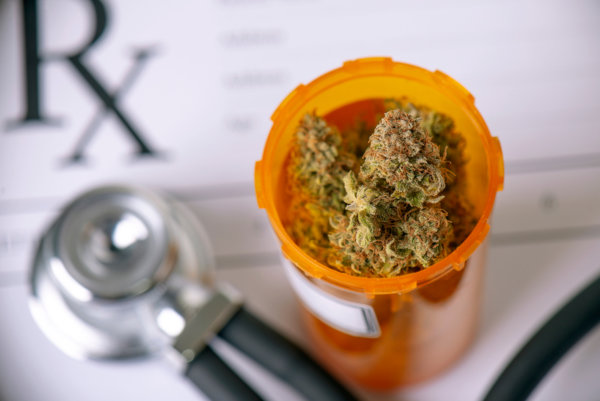
Cons of Marijuana Use – Marijuana is the dried and ground or shredded leaves, stem, flowers, and seeds of the cannabis plant. As with other substances, marijuana use can result in both positive and adverse effects.
Many of marijuana’s effects are acute, meaning that they last for only a brief period. Other effects are longer-term and may not manifest for some time.
Traditionally, marijuana is ingested by smoking. However, cannabis can also be used in the following ways:
- Vaping
- Used as part of an oil
- Brewed as a tea
- Cooked into food such as brownies
Many people use marijuana for medicinal purposes, either legally or illicitly. However, no drug comes without risks, and there are cons of marijuana use that, for some, may outweigh the benefits.
Physical Effects of Marijuana on the Body
Some of the most common physical health effects from marijuana use include the following:
- A higher likelihood of developing a cough with phlegm and bronchitis from smoking
- Lung irritation from irritants including some carcinogens
- A weakened immune system caused by the effects of THC
- Accelerated heart rate by up to 50 beats per minute
- Red eyes from increased blood flow
- Exacerbation of pre-existing lung conditions, such as asthma
- potential interference with tumor growth
- Interference with fetal development during pregnancy
- Interference with brain development among adolescents
When people use it for medical purposes, marijuana may be beneficial for the following:
- Reducing pain and inflammation associated with certain medical conditions
- Helping with glaucoma
- Reducing nausea in people undergoing chemotherapy

Marijuana Effects on Brain and Body
Some of the most common effects associated with marijuana include the following:
- Dopamine induced feelings of pleasure
- Increased appetite and thirst
- Increased or reduced depression symptoms
- Increased or reduced anxiety symptoms
- Impaired judgment and decision-making
- Memory impairment
- Symptoms of withdrawal after long-term use
- Delayed reaction times
- Temporary paranoia and hallucinations
- Dependence and addiction, in some cases
How Marijuana Can Affect Youths
Children and teens are much more susceptible to the potential adverse effects of marijuana. For example, when a mother uses marijuana during pregnancy, the baby may develop memory and concentration problems as they grow.
Breastfeeding mothers who use marijuana may be exposing their baby to potentially harmful effects. For these reasons, women should avoid using marijuana while pregnant or breastfeeding.
Marijuana can also impact the brain development of older children and teenagers. This effect can result in memory loss, difficulty concentrating, and impaired problem-solving abilities. Furthermore, research suggests that, for those under the age of 25, marijuana use may impair memory and learning.
Long-Term Marijuana Effects
The long-term effects of marijuana use depend on several factors, including a person’s age when they begin using and the frequency and amount of use.
Long-term effects depend on several factors, including the following:
- Method of use (e.g., smoking)
- How often it is used
- Amount used
- The potency of THC in the marijuana ingested
- Existence of mental health disorders
- The age of the person using it
Some potential long-term effects include the following:
- Focus and memory impairment
- Chronic lung irritation
- Exacerbation of other lung conditions
- Cannabinoid hyperemesis syndrome
Marijuana Use Disorder
Regular marijuana consumption can result in the development of problematic use, also known as a marijuana use disorder. In extreme cases, this can take on the form of addiction. Recent data suggest that 30% of those who use marijuana may suffer from some degree of marijuana use disorder. Young people who begin using marijuana before age 18 are up to 7 times more likely to experience a marijuana use disorder than those who do not use until after adulthood.
Chronic marijuana abusers often report experiencing the following:
- Irritability and agitation
- Mood swings
- Sleep difficulties
- Decreased appetite
- Drug cravings
- Restlessness
These symptoms begin within 2-3 days, peak within the first week after quitting, and may persist for up to 2 weeks. According to the National Institute on Drug Abuse (NIDA), “marijuana dependence occurs when the brain becomes accustomed to large amounts of the drug by reducing production of and sensitivity to its own endocannabinoid neurotransmitters.”
Marijuana use disorder has developed into an addiction when the person cannot stop using the drug despite its interference with many aspects of life. Estimates of the number of those who are addicted to marijuana remain controversial, however. This is because studies related to substance use often use the concept of dependence interchangeably with that of addiction, although it is possible to be dependent on a substance without becoming addicted.
That said, studies suggest that 9% of people who use marijuana will become dependent on it. This number increases to about 17% among those who start using in their teenage years.
In 2015, around four million people in the U.S. met the diagnostic criteria for a marijuana use disorder. Of those,138,000 voluntarily sought treatment for their marijuana use.
Cons of Marijuana: Withdrawal

Although some believe that marijuana dependence is not possible, studies have proven that it is. However, it does have a much lower occurrence rate than with many other drugs of abuse.
Marijuana use disorders are often linked to dependence. Dependence results in the onset of withdrawal symptoms when the person stops using the drug. The younger a person starts experimenting with marijuana, the more likely they are to become dependent upon it.
Some symptoms of marijuana withdrawal syndrome include:
- Headaches
- Chills and fever
- Irritability
- Anxiety or depression
- Shakiness
- Loss of appetite
- Weight loss
- Extreme sweating
- Restlessness
- Stomach pain
- Sleep disturbances
- Daytime tiredness
Cons of Marijuana: Overdose
An overdose of marijuana is not thought to have the potential to be fatal. However, excessive use can result in severe symptoms. Some people who have a mental illness or are ingesting other substances, such as heroin, alcohol, or cocaine, may also have a higher risk of experiencing extreme effects.
Symptoms may include the following:
- Very elevated heart rate
- Severe headache
- Pale skin
- Paranoia and panic attacks
- Delusions and hallucinations
- Fainting
Symptoms like the ones mentioned above should not be disregarded under any circumstances. Do not let the fact the symptoms originated from cannabis dissuade you from seeking help for yourself or someone else.
Of note, a New Orleans coroner recently made the news, stating that he determined that a 39-year woman, who died in February 2019, succumbed to the first-ever marijuana overdose reported in the U.S.
The official cause of death was THC. In an autopsy report, Coroner Dr. Christy Montegut claimed that THC was the only drug in the deceased woman’s system. Montegut explained that “her autopsy showed no physical disease or afflictions that were the cause of death” and that “there was nothing else.”
Skeptics, such as University of Toronto professor Bernard Le Foll, disagreed. He argued that the THC levels recorded were “not very high” and hardly a fatal dose.
Treatment for Marijuana Abuse
Although addiction to marijuana may be relatively uncommon, there is no question that many people find themselves in its grips and unable to quit. For some, professional treatment may be the best option.
Recovery By The Sea offers specialized treatment for marijuana abuse and addiction. Our comprehensive programs include psychotherapy, counseling, group support, and aftercare planning. Our treatments are aimed at treating the whole person, not just the addiction itself.
If you or someone you know is struggling to stop using marijuana, contact us today! We can help you free yourself from the chains of addiction for life!
READ THIS NEXT: Does Marijuana Kill Brain Cells?